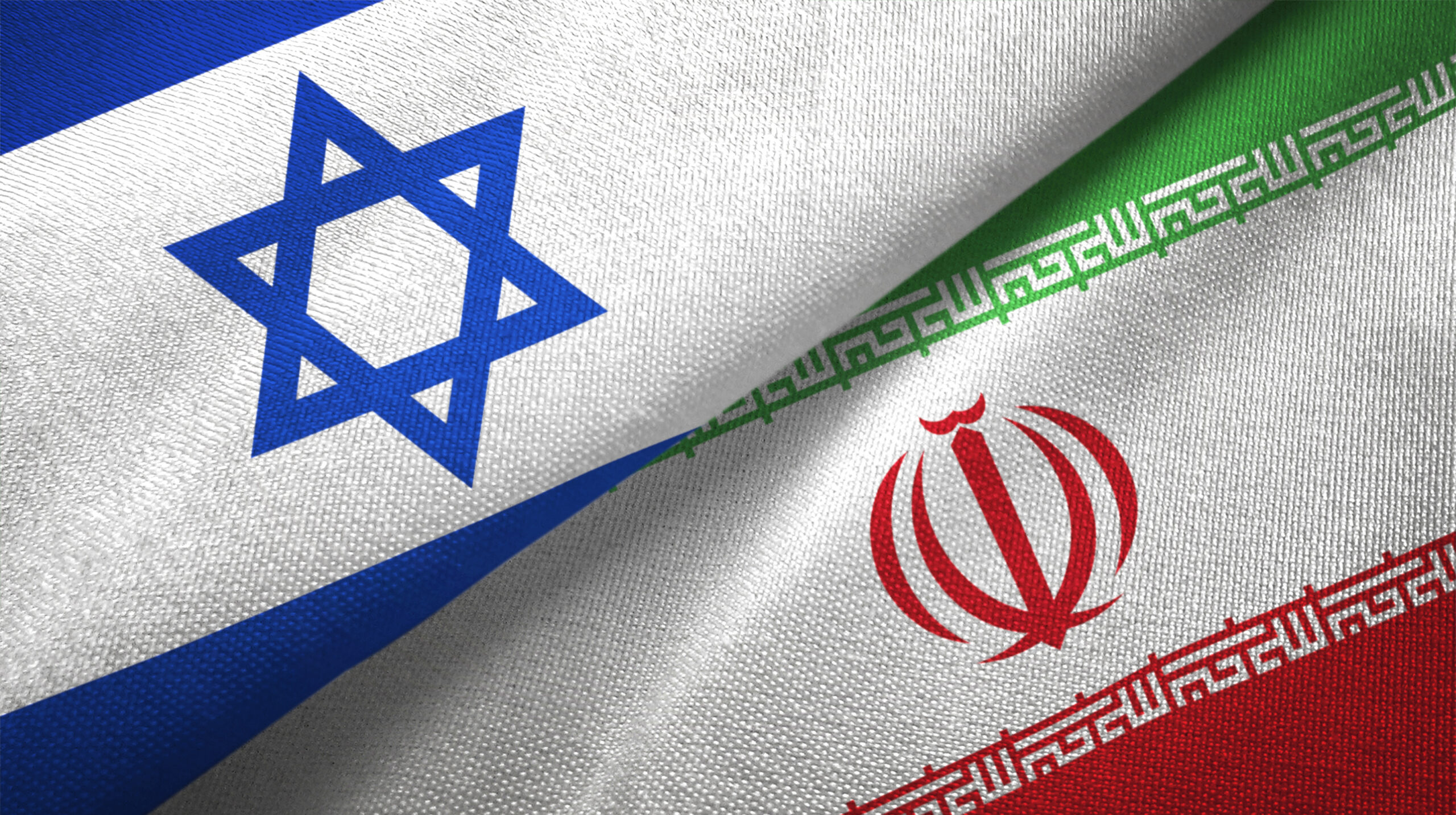Tensions in the Middle East have already spilled over into Lebanon following the killing of Hezbollah chief Hassan Nasrullah, and has the potential of engulfing the broader region, including Yemen, Iraq and Syria, in an all-out war.
The massive Israeli offensive against Hezbollah in Lebanon and Iran’s retaliatory strikes – over 180 missiles descending on Tel Aviv – is widely being seen as an inflection point in the Middle East that has been on the boil since Israel invaded Gaza nearly a year ago. Tension in the Middle East has the potential of engulfing the broader region, including Yemen, Iraq and Syria, in an all-out war.
Over the course of the year since the Gaza war started, Iran and its proxies, called the “Axis of Resistance”, and Israel and the United States have engaged in a cycle of tit-for-tat attacks across the region. The “Axis of Resistance” – Hamas, Hezbollah, the Syrian government, the Houthis of Yemen and armed groups in Syria and Iraq – have been a cornerstone of Iran’s regional policy in keeping Israel in check.
Iran’s Response to Israel’s Extra-Judicial Killing: A Chain Reaction
Iran directly attacking Israel after years of a shadow war is likely to set off a chain reaction along the complex web of alliances and rivalries across the Middle East. While some high-profile leaders like Hamas politburo chief Ismail Haniyeh and top Hezbollah commander Fuad Shukr have already been killed, there are other key players and actors who have stepped in as a regional war looms large.
The Israeli airstrike that killed Hezbollah’s leader, Hassan Nasrallah, was the latest in a series of assassinations of senior figures with ties to the regime. In a short statement eulogising Nasrallah, Iran’s supreme leader, Ali Khamenei, declared that Israel had “not become victorious” by carrying out the strike on Nasrallah, which he described as an “atrocity”. The absence of any direct vow of revenge in Khamenei’s statement has led to concerns among many in Tehran that Israel is exposing Iranian weakness. To assuage such concerns, an Islamic Revolutionary Guard Corps commander has reportedly briefed Iranian parliamentarians that the successful strike on Nasrallah did not degrade Hezbollah’s capabilities.
Iran’s theocratic leadership promised the country’s citizens security and prosperity – a weighty commitment to make in a region beset by war and deprivation. In many respects, Iran’s leaders have failed to uphold this promise.
Iran’s Approach
Iran’s approach has a clear historical explanation. Unlike Israel, a nation formed through repeated and enduring mobilisations for war, the Islamic Republic of Iran is a political project committed to demobilisation. While the country’s theocratic government and military structures were consolidated through the “sacred defence” of Iranian territory during the Iran-Iraq war, the social contract that emerged after the war centred on the idea that its nightmares would not be repeated. Iran’s theocratic leadership promised the country’s citizens security and prosperity – a weighty commitment to make in a region beset by war and deprivation. In many respects, Iran’s leaders have failed to uphold this promise. Prosperity has been undermined by the country’s isolation under US sanctions. Security has been undermined by the repression that the state has meted out on its own people, especially Iranian women.
But Khamenei, who was Iran’s president during the eight-year conflict with Iraq, has managed to keep war at bay, even as devastation befell neighbouring Afghanistan, Iraq and Syria, and even as senior politicians in the US and Israel have continued to threaten a decisive invasion of Iran.
If Iran gets dragged into a war with Israel, it will mark the end of the political project over which Khamenei has presided for 35 years. It would mean that Iran could not, despite the purported righteousness of its religious government, or the plain advantages of its nationhood, overcome the entropic forces of the Middle East.
What would constitute a lawful preemption?
Optimally, Israel would do everything possible to prevent such destabilizing Iranian measures, especially because of the corollary risks of accidental or unauthorized attacks against its armaments and/ or populations. But if such measures were to become a fait accompli, Jerusalem could still calculate correctly that a preemptive strike would be both lawful and necessary. Such a judgment would have this reasoning: The expected Iranian retaliation, however damaging, would still be more tolerable than the expected consequences of Iranian first strikes.
In its present jurisprudential form, Israel, which “began” in 1948, will last only as long as its leaders remain attentive to Cicero’s warning about national safety. Such attentiveness could be entirely consistent with the universally binding expectations of both codified and customary international law. Law is never a suicide pact. Accordingly, Israel’s basic security problems with Iran could at some point compel.
An Israeli decision to preempt
What does the convergence of strategic and jurisprudential assessments of preemption say about Israel’s calculations on striking first? It suggests, among other things, that Israel need not be deterred from undertaking security-maximizing forms of preemption out of fear that its actions would be described as criminal. Although many states would condemn Israel for “aggression” under any circumstances, this particular charge – so long as Israel’s preemptive strikes met the expectations of jus ad bellum (justice of war) and jus in bello (justice in war) – could be countered authoritatively by informed references to the law of nations.
In jurisprudence, as in other realms, history deserves pride of place. The right of self-defense by forestalling an attack appears in Book II of Hugo Grotius’s The Law of War and Peace in 1625. Recognizing “present danger” and threatening behavior that is “imminent in a point of time,” Grotius indicates that self-defense is to be permitted not only after an attack has been suffered, but also in advance; that is, “where the deed may be anticipated.” Or, as he explains a bit further on in the same chapter, “It be lawful to kill him who is preparing to kill.”
Before Israel could persuasively argue any future instances of anticipatory self-defense under international law, however, a verifiable case would have to be made that Jerusalem had first sought to exhaust all available means of peaceful settlement. Even a very broad view of anticipatory self-defense cannot relieve a state of this obligation, codified inter alia at Article 1 and at Article 2(3) of the UN Charter. Strictly speaking, these obligations should not necessarily be binding upon Israel because of the de facto condition of belligerency created and sustained by Iran, but the global community generally seems to have ignored these conditions.
Way Ahead
All things considered, if war between Israel and Iran is expected, it would be more rational for Jerusalem to enter such belligerency as the sole nuclear combatant and to wage this war such that that asymmetry could continue. Nonetheless, even during a conventional war with Iran, Israel could decide that the expectations of “escalation dominance” had become overwhelming, and that an Israeli escalation to nuclear combat would still be rational. An example could involve an Iranian nonnuclear missile attack upon Israel’s Dimona nuclear reactor, Iranian resort to radiation-dispersal weapons (dirty bombs), and/or the combat involvement of already nuclear North Korea on the side of Iran. In all such complex scenarios, Cicero’s counsel would remain primary and incontestable: “The safety of the People is the highest law.”
The Writer is an Associate Professor in Seedling School of Law and Govenrance, Jaipur National University, Jaipur.














